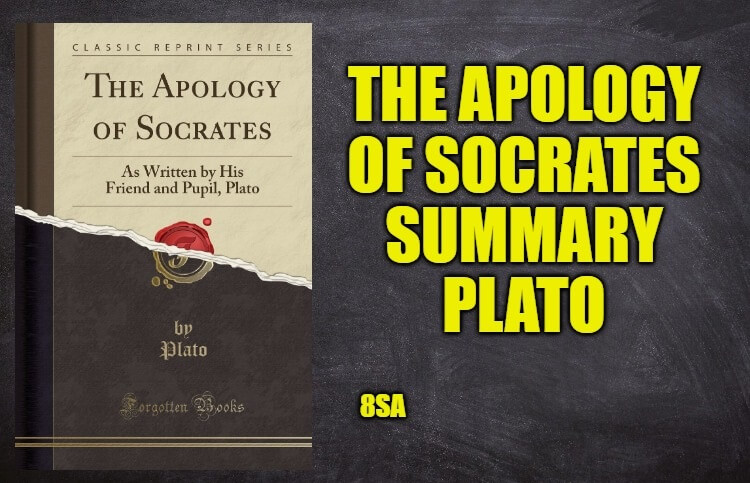The Apology written by Plato summary and theme. The Apology of Socrates book summary, analysis and information of the book by Plato.

The Apology
“The Apology” is a dialogue written by Plato, one of the most well-known and influential philosophers of ancient Greece. It is a representation of the defense that Socrates, Plato’s teacher and mentor, gave at his trial in 399 BC. Socrates was charged with impiety and corrupting the youth, and in “The Apology,” he defends himself against these charges and presents his views on the nature of wisdom, justice, and the role of the philosopher in society.
In “The Apology,” Socrates explains that he is not guilty of the charges against him, and that his only crime is being a philosopher. He argues that he has always been concerned with the welfare of the Athenian people, and that he has only ever sought to help them by questioning them about their beliefs and values. Socrates also explains that he has never taught or charged money for his services, and that he has always been guided by his conscience and his belief in the pursuit of truth.
Summary
“The Apology” is a dialogue written by Plato, one of the most well-known and influential philosophers of ancient Greece. It is a representation of the defense that Socrates, Plato’s teacher and mentor, gave at his trial in 399 BC. Socrates was charged with impiety and corrupting the youth, and in “The Apology,” he defends himself against these charges and presents his views on the nature of wisdom, justice, and the role of the philosopher in society. The work is an important document in the history of Western philosophy and continues to be studied and discussed by scholars and students of philosophy today.
The work begins with Socrates defending himself against the charges of impiety and corrupting the youth. He explains that he is not guilty of these charges, and that his only crime is being a philosopher. Socrates argues that he has always been concerned with the welfare of the Athenian people, and that he has only ever sought to help them by questioning them about their beliefs and values. He also explains that he has never taught or charged money for his services, and that he has always been guided by his conscience and his belief in the pursuit of truth.
One of the main themes in “The Apology” is the nature of wisdom and knowledge. Socrates argues that he is not wise, but that he is aware of his own ignorance. He explains that the pursuit of wisdom is a lifelong process, and that true wisdom can only be found by questioning and examining one’s own beliefs and values. Socrates also argues that the pursuit of wisdom is the highest good and the most important duty of the philosopher. He asserts that the true philosopher should not fear death, but should always be willing to die for what is right.
Another theme in “The Apology” is the role of the philosopher in society. Socrates argues that philosophers have a duty to question and examine the beliefs and values of society, in order to help the people understand the truth and live virtuous lives. He explains that the philosopher is a “gadfly” who stirs up the people and forces them to think for themselves. Socrates also argues that the true philosopher should not be concerned with wealth or power, but should be guided by the pursuit of truth and virtue.
Finally, “The Apology” also explores the theme of justice and the nature of the legal system. Socrates argues that he is not guilty of the charges against him, and that the true nature of justice is not found in the laws of the state, but in the conscience of the individual. He also asserts that the true philosopher should not fear death, but should always be willing to die for what is right.
In summary, “The Apology” is a work that explores the themes of wisdom, knowledge, justice, and the role of the philosopher in society through the defense of Socrates in his trial. It serves as an important document in the history of Western philosophy and continues to be studied and discussed by scholars and students of philosophy today.
Analysis
“The Apology” is a powerful and thought-provoking work that serves as an important document in the history of Western philosophy. The dialogue is a representation of the defense that Socrates, Plato’s teacher and mentor, gave at his trial in 399 BC, it is a powerful analysis of the nature of wisdom, justice, and the role of the philosopher in society.
In conclusion, “The Apology” is a powerful and thought-provoking work that continues to resonate with readers today. Its themes of wisdom, justice, and the role of the philosopher in society are timeless and enduring, and it serves as a powerful reminder of the importance of questioning, examining and challenging our beliefs and values.